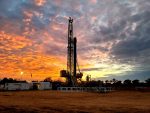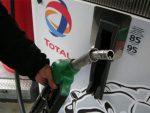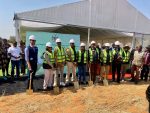The City of Windhoek (CoW) has announced a significant investment of N$4.7 million to conduct a general valuation of all rateable properties within its municipal area, set to commence on 1 May 2025. This ambitious year-long initiative, approved during the most recent Ordinary Council Meeting, aims to update property values to establish a fair and equitable framework for municipal rates and taxes over the next five years. The valuation process, mandated by law to occur at least every five years, marks a critical step in aligning the city’s fiscal policies with current market realities while ensuring transparency and accuracy for residents and property owners.
The last general valuation was conducted in February 2015, and the upcoming exercise will involve extensive data collection and analysis to reflect changes in property values over the past decade. According to the Municipal Council, the updated valuations will serve as the foundation for determining property taxes, ensuring that contributions to municipal services are distributed fairly among residents.
The N$4.7 million budget will cover the costs of this comprehensive exercise, which is expected to conclude by mid-2026. Throughout the process, the public will be kept informed of key milestones and invited to provide feedback, reinforcing the city’s commitment to community engagement.
In addition to its fiscal implications, the valuation aligns with broader urban planning goals. By capturing accurate data on property usage and development, the city aims to refine its strategies for infrastructure investment, zoning, and sustainable growth. “This valuation is not just about taxes—it’s about building a clearer picture of Windhoek’s evolving landscape to better serve our residents,” a council representative stated. The policy also includes safeguards to prevent speculative land purchases, ensuring that institutional and residential properties are developed in line with the city’s long-term vision.
While the property valuation dominated discussions, the council meeting also highlighted several other initiatives underscoring Windhoek’s commitment to sustainability, innovation, and community empowerment. Among these was the approval of a major donation to Farm Okukuna, an urban agriculture project in Goreangab. The EU-funded AfriFoodLinks program will contribute infrastructure and equipment worth N\$750,000 (€35,000) to expand the farm’s capacity. Since its establishment in 2015, Farm Okukuna has played a vital role in addressing food insecurity by supporting small-scale farmers through greenhouse plots, irrigation systems, and training. The Ministry of Agriculture, Water and Land Reform further bolstered the project by donating three solar-powered e-motorcycles to improve farmers’ mobility and efficiency in transporting goods to markets.
Another landmark decision involved a partnership with the Namibia Centre for Research, Science, and Technology (NCRST) to establish a Science, Technology, and Innovation Centre (STIC) at the UN Plaza Community Complex in Katutura. Renovations to the complex, estimated at N$2.3 million, will transform the space into a hub for education and entrepreneurship. The centre aims to inspire students, educators, and innovators by providing access to cutting-edge resources and fostering collaboration on scientific and technological projects.
The council also approved amendments to the Institutional Land Policy, tightening regulations on the use and transfer of institutional land and sports grounds. Under the revised policy, landowners must retain the original purpose of their properties for 30 years post-purchase unless granted explicit council approval for changes. Transfers to third parties will incur penalties based on the difference between the original purchase price and current market value, unless the property has been improved in accordance with town planning guidelines. These measures aim to curb speculative transactions and ensure land is used in alignment with communal needs.
In a push toward sustainable urban mobility, the council revived the Low-Carbon Public Transport Initiative under the Move Windhoek initiative.










